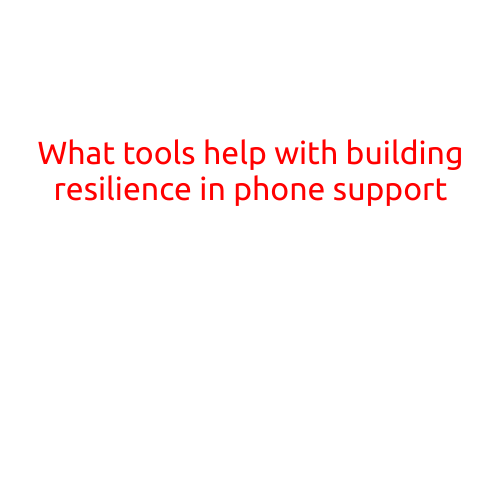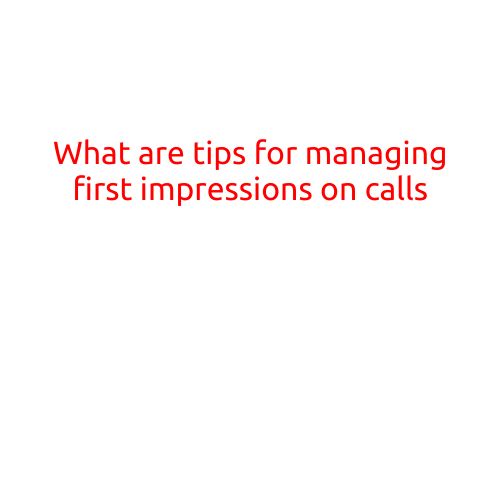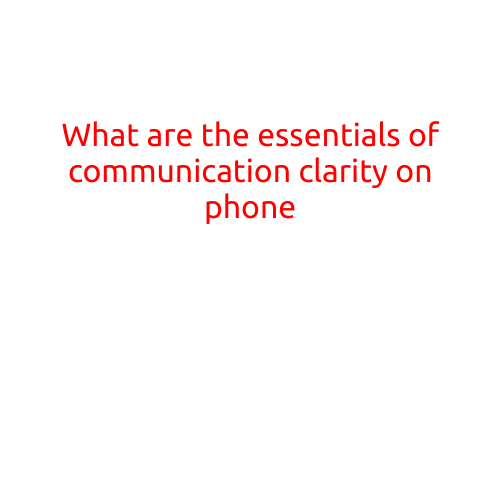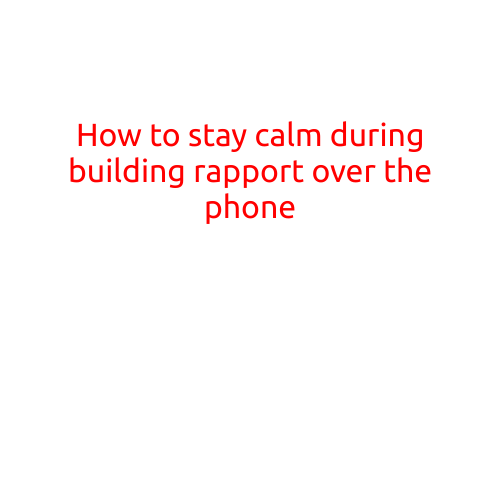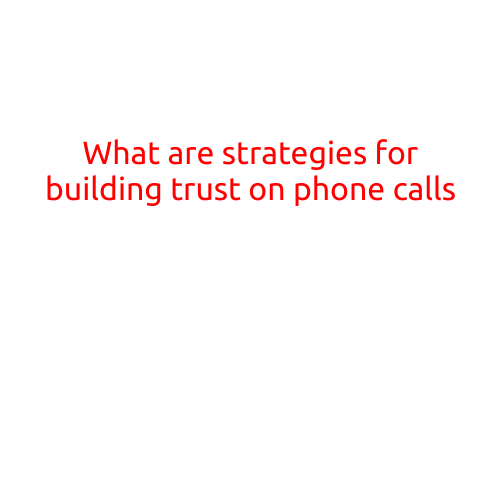
What are Strategies for Building Trust on Phone Calls?
In today’s digital age, phone calls are still an essential aspect of business communication. Phone calls can help build strong relationships, close deals, and even resolve conflicts. However, to achieve these goals, it’s crucial to establish trust with the person on the other end of the line. Building trust on phone calls requires a specific set of strategies that help establish a sense of confidence, reliability, and understanding between the caller and the recipient.
1. Start with a strong opening
Your opening sentence sets the tone for the entire call. Make sure it’s clear, concise, and relevant to the reason for the call. Avoid clichés like “hi, how are you?” and instead opt for something that shows you’ve done your research and are prepared to talk about the topic at hand. For example, “Hi, I’m calling about the recent changes to your company’s product lineup. Can you walk me through what those changes mean for your customers?”
2. Show empathy and understanding
Phone calls can be intimidating, especially if you’re calling a potential customer or client. Showing empathy and understanding can help put both parties at ease and establish a connection. Ask open-ended questions that encourage the recipient to share their thoughts and feelings, and actively listen to their responses. For example, “I can understand why you might be concerned about this new policy. Can you tell me more about what’s bothering you?”
3. Use active listening
Active listening is a crucial aspect of building trust on phone calls. It means paying attention to what the other person is saying, both verbally and non-verbally. Make eye contact (even if you’re not in-person), nod your head to show you’re engaged, and summarize what they’re saying to ensure you understand their perspective. For example, “Just to make sure I understand, you’re saying that the recent price increase has affected your bottom line. Is that correct?”
4. Be transparent and honest
Honesty is always the best policy, especially on phone calls. Be transparent about your intentions, motivations, and the purpose of the call. Avoid making false promises or hiding information, as this can quickly erode trust. Instead, focus on providing accurate information and clearly communicating your value proposition. For example, “I want to make it clear that we’re not here to upsell or push unwanted services. We’re calling because we genuinely believe our product can help your business grow and improve.”
5. Show expertise and authority
Establishing yourself as an authority in your industry can go a long way in building trust on phone calls. Share relevant stories, statistics, or anecdotes that demonstrate your expertise and understanding of the topic at hand. For example, “As someone who’s worked with multiple clients in this space, I can tell you that our approach has consistently delivered positive results. I’d be happy to share some case studies with you if you’re interested.”
6. Follow up and follow through
After the call, make sure to follow up on any commitments you made and follow through on your promises. This not only helps establish your reliability but also shows that you’re committed to building a strong relationship. For example, if you promised to send a proposal or whitepaper, make sure to deliver on that within a reasonable timeframe.
7. Use positive body language and tone
Your tone and body language can still convey emotions and enthusiasm over a phone call. Make sure to use a positive tone and inflection to show your enthusiasm and excitement about the topic. For example, “I’m super excited about the potential for our product to help your business grow. Can we schedule a follow-up call to discuss the details?”
8. Show appreciation and gratitude
Finally, make sure to thank the recipient for their time and show appreciation for their feedback. A simple “thank you” or expression of gratitude can go a long way in building trust and establishing a positive rapport. For example, “Thank you so much for taking the time to speak with me today. I really appreciate your insights and will definitely take them into consideration as we move forward.”
In conclusion, building trust on phone calls requires a combination of strategies that help establish a sense of confidence, reliability, and understanding between the caller and the recipient. By starting with a strong opening, showing empathy and understanding, using active listening, being transparent and honest, showing expertise and authority, following up and following through, using positive body language and tone, and showing appreciation and gratitude, you can build strong relationships and achieve your goals over the phone.
